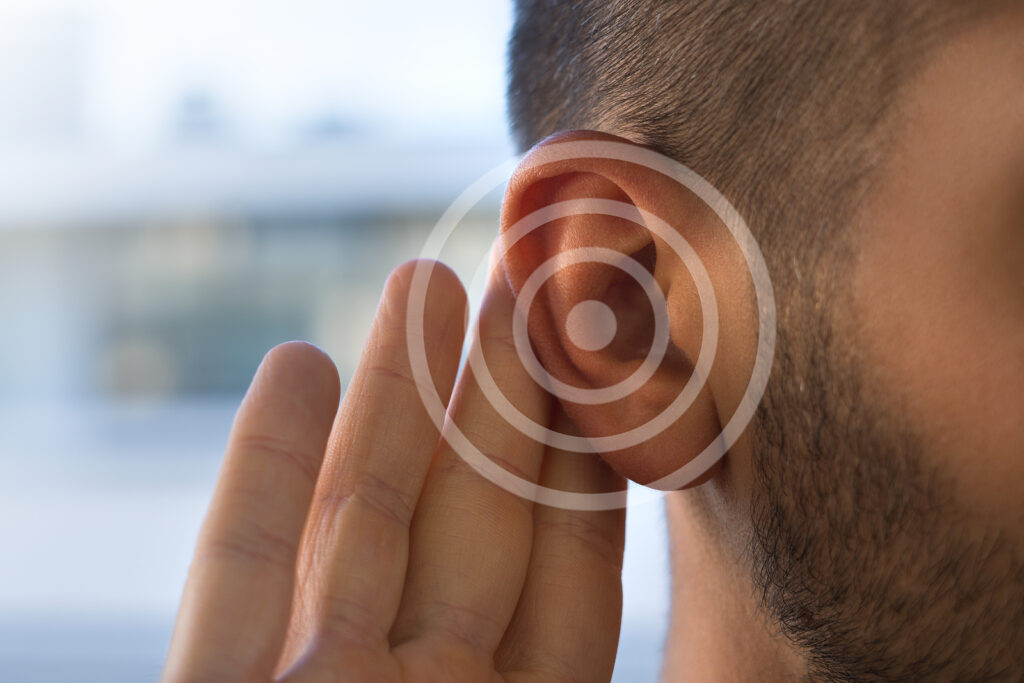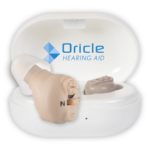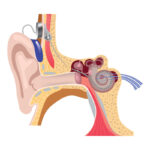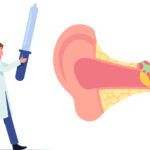Causes of Objective Tinnitus: The Loud Truth Unveiling the Root
Objective tinnitus is a medical condition where the sound perceived by the patient is also audible to the examiner, usually by auscultation. Palatomyoclonus, characterized by repetitive rapid contractions of the soft palate muscles, is the most frequent cause of objective tinnitus.
This condition can be caused by various factors, including neurological disorders, brainstem lesions, or local factors such as infection or inflammation. Another possible cause of objective tinnitus is idiopathic stapedial muscle spasm, which occurs when the stapedius muscle contracts repetitively, leading to sound transmission to the ear.
Additionally, patulous eustachian tube syndrome can also cause objective tinnitus by allowing the sound to travel from the nasal cavity to the middle ear. Interestingly, symptoms of tinnitus usually disappear when the person lies in a dependent position, such as on their back with their head tilted back, which can provide temporary relief for patients suffering from this condition.
Symptoms of Objective Tinnitus

The tinnitus associated with this type of disorder is often the result of abnormal muscle or vascular contractions. Because tinnitus is not produced by external acoustic stimulation, it is usually permanent. However, it can be treated medically. If you experience the above symptoms, you should visit a doctor for a consultation. In some cases, tinnitus can be treated with tinnitus retraining therapy.
The noises in the ears are often indistinguishable from the sound of the heart. Sometimes, they may be a continuous hum or clicking sound. If your doctor hears the noises, you may have objective tinnitus. This condition can be very stressful and may make you feel depressed or hopeless. There are many options available to help you overcome your tinnitus.
Muscular tinnitus may be a symptom of a degenerative disease, such as amyotrophic lateral sclerosis or multiple sclerosis. Other causes of objective tinnitus include myoclonus, an abnormal contraction of the muscles in the middle ear, and a tumor. Most of these conditions are benign and self-limiting, though you should consult a doctor if you experience them or notice a sudden onset.
Symptoms of subjective tinnitus are usually difficult to diagnose. Nonetheless, tinnitus sufferers often experience a roaring, hissing, or whooshing sound, even when there is no external noise. Symptoms may be difficult to detect, but doctors are able to find them and treat them. It is important to remember that objective tinnitus is a relatively rare condition, which only occurs in a small percentage of cases.
When objective tinnitus occurs, there are two types of hearing loss. One type is pulsatile tinnitus. It can be unilateral or bilateral. Typically, it is characterized by high-pitched ringing and is audible only to the person who has it. There is no definitive test to determine the cause of objective tinnitus, but you should consult your doctor to rule out any other causes before starting treatment.
There are also three types of subjective tinnitus. Pulse tinnitus is a rhythmic type, and its cause is unknown. However, it is linked to increased awareness of blood flow in the ears. Another type is low-frequency tinnitus. It corresponds to the two lowest octaves of a piano. Low-frequency tinnitus sounds like humming, murmuring, or droning.
Causes of Objective Tinnitus
There are two types of objective tinnitus. Pulsatile tinnitus and arterial tinnitus are related to abnormalities of the blood vessels. Pulsatile tinnitus is associated with increased blood flow through a stenos or normal artery. Venous causes of objective tinnitus include thromboembolism, arteriovenous malformation, and pulmonary embolism.
Objective tinnitus is caused by abnormalities of the auditory pathways or muscles. In some cases, these abnormalities can be corrected, resulting in a permanent cure. Objective tinnitus can be heard by an observer or a medical professional using a stethoscope. Patients who experience objective tinnitus should seek medical advice as early treatment is necessary to prevent further damage to the ear.
When evaluating the patient with objective tinnitus, physicians should first check the ear for physical problems. If there is a problem with the middle ear, the diagnosis may be meniere's disease. In rare cases, the cause of tinnitus is a tumor on the nerve that supplies hearing. Patients with acoustic neuromas can also experience subjective tinnitus.
Objective tinnitus is generally less disruptive to your daily life. It can interfere with your daily routine, but there are measures you can take to minimize its impact. Keeping your blood pressure under control and avoiding loud noises can help minimize the symptoms. Sleeping well is also important to improving overall quality of life. As with all medical conditions, “objective tinnitus” is treatable, and there are several treatment options for this condition.
Noise is a common cause of subjective tinnitus. Exposure to loud noise may damage the stereocilia, which transmits constant sound through the auditory system. Other possible causes of objective tinnitus are ototoxic chemicals, head injuries, and certain medications. A medical professional should be consulted as soon as possible if a patient suffers from both types of tinnitus.
If objective tinnitus is present, it means there is a problem with the brain or the ear. The underlying cause of subjective tinnitus is unknown. It is a condition that may have a long-term effect on a patient's quality of life. There are various ways to treat subjective tinnitus, including psychological coping methods and sound therapies. Additionally, certain types of stimulation have been shown to alleviate subjective tinnitus symptoms.
Treatments of Objective Tinnitus

The present study surveyed clinicians from six Westernized countries on treatment options for tinnitus, which includes both subjective and objective types. The aim was to establish appropriate referral pathways for this condition, to assess typical treatment options, and to obtain the clinical opinion of clinicians about the satisfaction of patients with current standards of practice. The results of this study have implications for patients and physicians worldwide. The findings have important implications for treatment for patients who suffer from both subjective and objective tinnitus.
Treatments for objective tinnituses include psychoacoustic and non-pharmacological approaches. Psychological therapy, in combination with other treatment options, is often recommended. Drugs such as antidepressants may alleviate depressive and sleep problems in patients with chronic tinnitus, though these drugs should be used in conjunction with psychological therapy. Cardiovascular drugs and anti-vertigo products are also common treatments for patients with tinnitus.
The lack of firm guidelines based on research has demonstrated the need for a systematic evaluation of current treatments for tinnitus. The proposed review will also examine the use of sleep disturbance scales to assess the effectiveness of tinnitus treatments. If the symptoms are associated with a physical problem, surgery may be recommended. In some cases, white noise machines may be used as a means to drown out the sound of tinnitus.
Objective tinnitus is a common comorbid condition. It often co-occurs with hearing loss and may be alleviated by hearing aids. This condition can be difficult to understand for the dual sensory impaired because visual information may not be sufficient to understand the source of the problem. Mental health conditions can exacerbate the problem. The goal of treatment is to improve the quality of life for patients and the tinnitus sufferers.
Some treatment options for tinnitus involve the use of acoustic stimulation, a common component of many treatment options. While acoustic stimulation has proven to be a viable treatment option for most patients, it is not appropriate for people with profound hearing loss. Besides sound therapy, patients may also benefit from cochlear implantation and other forms of auditory pathway stimulation.
Alternative therapies
There is no single cure for tinnitus, which makes it all the more frustrating for the sufferer. Current treatment focuses on habituating the patient to the noise, rather than eliminating it entirely. However, there are some causes of tinnitus that can be addressed with alternative therapies. In Germany, for example, physical therapy is common. A number of physicians reported that they were not familiar with the classification system.
Those who suffer from tinnitus should be aware of the difference between subjective and objective tinnitus. Subjective tinnitus includes the sounds only the patient can hear, while objective tinnitus involves noises produced by the body, and can only be heard by a medical professional. The former type is rarer and usually stems from problems in the auditory pathways and musculoskeletal or vascular structures. There are more than 200 different health conditions that can cause tinnitus, and both are equally effective.
While there is no cure for tinnitus, many people find that alternative treatments help manage the condition and minimize the pain. While many natural remedies are effective, these have not been tested medically. Seeking professional help is the first step in finding the best solution. And remember, the best way to get help is to understand the condition you have. In fact, it may even reduce your symptoms by half!
Aside from focusing on how to cope with the pain and discomfort of the noise, alternative tinnitus treatments can also be helpful for patients who have subjective tinnitus. These therapies can also address other comorbid conditions that cause tinnitus. They may not be as effective as a prescription medication, but they can improve your quality of life. And, most importantly, they're free of side effects, which can make it worth considering them.
Cognitive behavioral therapy involves problem-solving techniques. In the case of tinnitus, cognitive behavioral therapy combines counseling with sound therapy and patient education. In fact, some studies have even shown that cognitive behavioral therapy is more effective than medication. Some tinnitus-specific cognitive behavioral therapy is also effective in training the brain to ignore the sound. However, it is important to note that alternative therapies are not intended to cure tinnitus. The goal of these therapies is to reduce the level of distress the symptoms cause.
Sources:
- American Tinnitus Association (ATA) – A nonprofit organization that provides information and resources for tinnitus patients and advocates for tinnitus research. Link: https://www.ata.org/
- Mayo Clinic – A nonprofit medical organization that provides information on tinnitus symptoms, causes, and treatment options. Link: https://www.mayoclinic.org/diseases-conditions/tinnitus/symptoms-causes/syc-20350156
- National Institute on Deafness and Other Communication Disorders (NIDCD) – A federal government agency that conducts research on hearing and communication disorders, including tinnitus. Link: https://www.nidcd.nih.gov/health/tinnitus
- British Tinnitus Association (BTA) – A charity organization that provides support and information for people with tinnitus and advocates for tinnitus research. Link: https://www.tinnitus.org.uk/
- Hearing Health Foundation (HHF) – A nonprofit organization that funds tinnitus research and provides information on tinnitus treatment options. Link: https://hearinghealthfoundation.org/tinnitus







